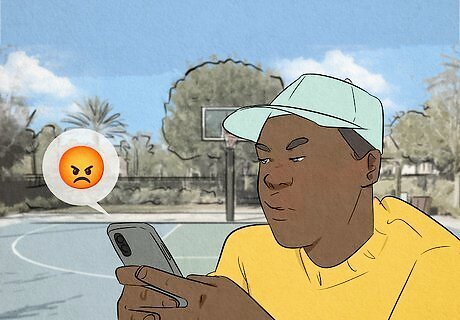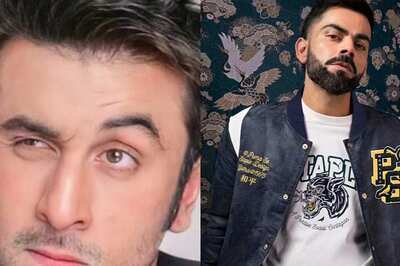
views
What is a sasaeng fan?

A sasaeng fan is an obsessed fan who stalks their idols. According to Jesslyn, sasaengs are “really crazy, invested fans.” They are fanatics who will do illegal things, like stalk their idols and find out where they live. “They’re dangerous fans,” Jesslyn explains. Examples of invasive activity by sasaeng fans include: Tapping their idols’ phones Installing GPS trackers on their idols’ cars Chasing their idols down with their cars Enlisting the help of groups to track their idols’ whereabouts and schedule(s) Following their idols home Breaking into their idols’ property Writing to idols in their own blood Breaking into their idols’ hotel rooms Harassing their idols’ family members Waiting outside of company buildings on late nights to see their idol Meet the wikiHow Expert Viankha Jesslyn, or Via, is a K-pop idol based in South Korea. She has performed in groups like mep-c and Beauty Box and has an upcoming debut with NWH:I.
Where does the term “sasaeng” come from?
Sasaeng is a Korean term that combines sa (private) and saeng (life). Sasaeng behavior has been going on since the 1990s when groups like H.O.T and g.o.d initially popularized K-pop, but the term wasn’t coined until afterward. Since the 2000s and 2010s (following the introduction of K-pop into the mainstream), the term has been used to refer to the obsessive stalker “fans.”
Sasaeng Fans’ Motivation
Sasaeng fans want to be seen by their idols by any means necessary. Attending shows and large meet-ups won’t give sasaeng fans the one-on-one time they desire. So, they often resort to stalking their idols, digging into flight, travel, and personal information (like texts and DMs) so they can find any info they can use to get noticed. At larger events, sasaeng fans feel like the crowd drowns out their individual presence. Their solution is to show up in the artist’s life constantly hoping it will get them noticed (and unfortunately, they’re often right). Real-World Example: In 2012, one sasaeng fan slapped JYJ’s Yoochun in the face as he was on his way to the hair salon, saying he’d remember her because she slapped him. Real-World Example: In 2011, a sasaeng fan attempted to kidnap Taeyeon from Girls’ Generation in the middle of a performance, grabbing her arm and attempting to pull her off stage.
The K-pop idol system may contribute to the sasaeng dynamic. Jesslyn explains that for K-pop stars, fame is their goal, and they're trained to be idols. “You are molded to be something that is above everyone else, that everyone should follow. And everyone should pay to see you whether or not the song is good or genuine or from the heart. It doesn't matter—the people come to see you, not for the music, and not for the dancing or the music video, just to see you as a person.” Jesslyn goes on to explain that K-pop idols are different than typical Hollywood stars, which creates more parasocial, or one-sided, relationships. “So there are a lot of things that we have to do as a K-pop idol to do fan service....We have to be more welcoming to everyone to reach a certain level of fame...We actually engage in some way to cultivate that parasocial relationship.” For example, Jesslyn explains, “We do fan calls...where we talk to fans and do what the fans want us to do. [Fans will ask us things], like “Could you say ‘Marry me?’ And sometimes we do it, just to engage with our fans.” “Hollywood pop stars don’t have to do fan service,” Jesslyn continues. “If they don’t like it, they can be rude. They have more autonomy.” So, the K-pop “environment [can] cultivate a scarier dynamic than other types of celebrities. That’s why the sasaengs are there,” she explains.
Why Sasaeng Fans Are Dangerous
Sasaeng fans endanger the health and safety of their idols. The obsessive lengths sasaeng fans are willing to go often make them unsafe to their idols. Some fans have stalked their idols for over a decade, while others have gone as far as to slap them in the face to be noticed. Sasaengs are a K-pop idols biggest fear, and being stalked has been linked to PTSD, paranoia, and other severe traumatic mental health issues. While there are anti-stalking laws in the U.S. and South Korea to combat sasaeng fans, they will still stalk their idols through social media and other online sites. For some, their motivation to be seen outweighs the legal risks of being caught, making them especially dangerous.
Similar Slang Terms

Stan A stan is a devoted, obsessive fan of someone or something. A stan is also a verb that’s used to describe how obsessed you are over someone or something. For example, you can be an Eminem stan, but you can also stan over Eminem (who coined the phrase with his 2000 song “Stan”).
Akgae Similar to sasaeng, akgae is a Korean term that refers to a malicious individual fan. The difference is that akgaes are obsessed with individual members of K-pop groups and actively dislike the other members, going as far as to spread hate and negativity about them. They typically do this to make their idol seem better in comparison, even if the information they’re spreading is false.
Groupie A groupie is a fan of a music group who follows them around in an attempt to get to meet them. They tend to follow them when they tour, attending as many shows as possible with the goal of being noticed by their favorite group (whether it be platonically or romantically, depending on the person and their motivations).

Anti-fan An anti-fan is someone who dedicates their time to criticizing or hating on an artist. Like sasaengs or stans, they devote much of their time to their craft, but instead of praising or idolizing the artist, they send their unabashed criticisms toward them.




















Comments
0 comment